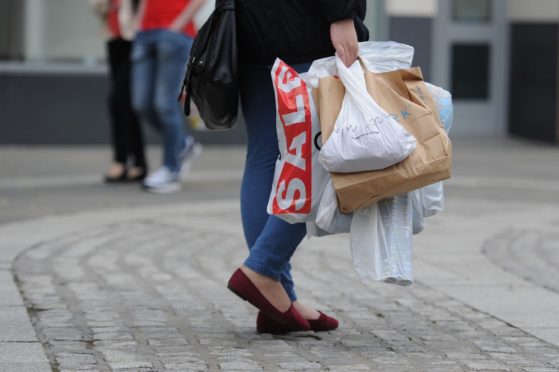As we enter 2020, not only a new year but indeed a new decade, our minds might be focused on new beginnings.
We might think about improving ourselves or our lives in some way – our wellbeing, our behaviour, our attitude and beliefs. Even if we are not making new resolutions, we are met with this kind of discourse across a variety of media, from peers on social media platforms to mass advertising messages on television.
Each year I teach a module in fashion history to our first year students; we look at the individual decades of the 20th century and how external factors (political, social, environmental, etc) link to and impact upon fashion. If I were to tell future students how it feels coming into 2020, I would say it feels quite uncertain. In the first two weeks of the year we have seen frightening imagery from the Australian bushfires, highlighting the impact of climate change, while worrying hostilities in the Middle East remind us how swiftly the global landscape can change. There is also, of course, the uncertain political terrain that is Brexit and the aftermath of the UK general election. Closer to home, there are discussions of a second referendum on Scottish independence.
I’m not here to tell you what you should or should not be aiming towards this decade, nor will I be discussing politics per se. However, it is important to set the scene of the new decade and consider what this might mean for the fashion industry and the consumption of fashion.
Fashion is, by its very definition, a dynamic sector. It relies on constant change and works in cycles. Fashion professionals need to interpret and influence consumer demand but also to react quickly to the external factors that could alter that demand. Fashion is a global industry, more and more of us are buying online and we have seen (especially over the past decade) the demise of the traditional high street. This is something that is perhaps particularly obvious in Aberdeen, where retail has shifted to the major shopping malls. After a surge in new retailers arriving in Aberdeen, we have unfortunately seen many of these depart in more recent years.
However, as the mass market of consumers have moved online and the industry has adapted and become more flexible in its offering, we also see some change in consumer attitudes towards shopping locally and preserving the high street as a cultural artefact – both in cities and towns.
The fashion industry has undoubtedly been one of the biggest polluters and receives a great deal of bad publicity around its environmental impact. Its reliance on change and the extent to which the fashion lifecycle and trends have sped up over recent years has resulted in the phenomenon of fast (and often disposable) fashion. As a result, we have seen an increase in cheap clothing and retailers who focus on this market targeting customers with a low disposable income – for which students are a key audience.
There are shocking reports of consumers buying suitcases and clothing specifically for events and holidays and simply abandoning it all before returning home. This issue has actually been highlighted at Glastonbury in recent years through an installation in 2017 and where a number of performers donated their festival outfits to Oxfam in protest at last year’s event.
Sustainability has become a key issue for the fashion sector and something that is highlighted by fashion brands today who are being held to account. The advent of social media has given consumers a voice and with more choice than ever before, ethics and sustainability are issues that the industry simply cannot afford to ignore. Are fashion brands engaging with sustainability initiatives for the right reasons? I’m not sure it actually matters. The important thing is whether they are engaging with these at all and whether they are doing so in a sufficient manner.
Over the past few years we have seen reports shaming a number of major fashion brands (from high street to high end) around the way in which they manufacture – and also in the way they dispose of – garments. These high-profile stories have sparked an increase in consumers’ knowledge around the issue of sustainability in fashion and sparked a call for action.
As we enter this new decade, sustainable and ethical practices factor into consumers’ decision-making processes more so than ever before. There are increasingly numbers of small businesses who focus on sustainability as a key principle of what they do. On the other hand, some mass market retailers are also engaging with and attempting to lead the way in sustainable and ethical practices.
In my experience as a lecturer, students are increasingly interested and engaged in these issues. Knowledge of these issues are built into the modules we teach but in more recent years students are arriving with existing knowledge and enthusiasm on the topic. This year a group of our first-year Fashion Management students have on their own initiative become ambassadors for the Fashion Revolution movement and are working to promote an understanding of ethics and sustainability amongst other students at the University.
Without a doubt, 2020 and the decade that follows is certain to call for further action from businesses. Amid concerns for the environment, the belief that proposed climate change action is overly conservative and as business practices become more transparent, it will be interesting to see what the future holds for the fashion sector. A sector that relies on change is now being tasked with evolving in a very different manner.
Madeleine Marcella-Hood is lecturer in fashion management and head of year one at Robert Gordon University

